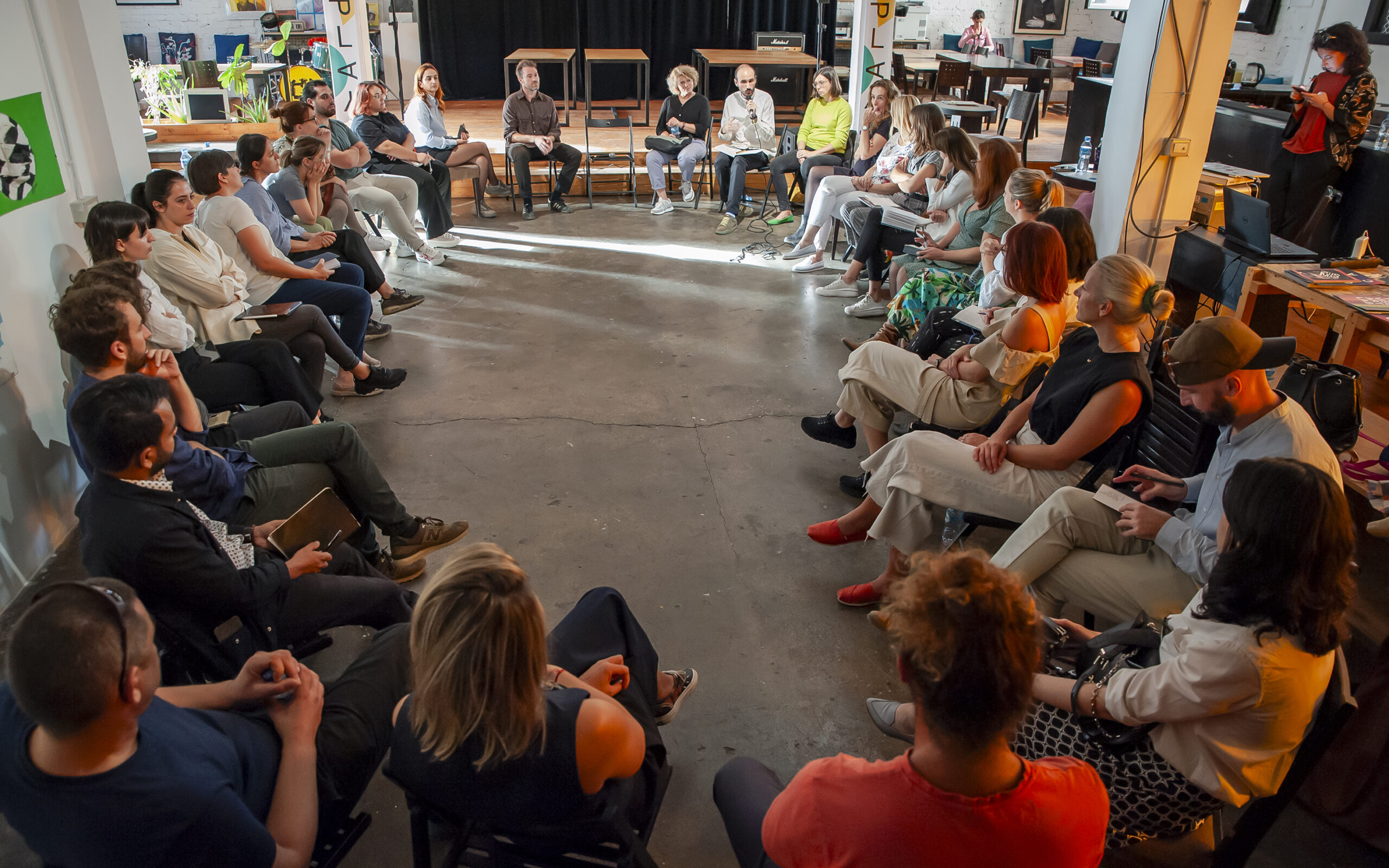How to combine play, expertise and co-creation with children to achieve more natural and adapted play spaces that better suit the needs of children and youth.
Bar, 8th March 2023 – International Women’s Day was celebrated with a partners meeting and preparation for the implementation of a pilot program under the RE:Play (Redesigning playscapes with children in the Western Balkans) project. This initiative is funded by the European Creative Europe Fund and aims to involve children as the end users in the collaborative and co-creative process of designing new playgrounds.
On March 8th, partners of the RE:Play project convened in Bar for a two-day partner exchange to review the progress of the three-year project and kickstart upcoming activities for co-creating natural landscape playgrounds with children. The initial stages of co-creation involved active participation from children in designing the playground content that will enrich the pilot yards. In the last phase of the project, some of the children’s proposals will be realised, marking a significant step forward in creating playgrounds that better suit the needs of children. As part of this exchange, colleagues from the Ljubljana organisation Pazi!park, Kreativni Krajobrazi from Zagreb, Škograd from Belgrade and Qendra Merrdanhie from Tirana joined forces together with the Gradionica team from Bar, so they could initialise the final part of the RE:Play program and work together with children to implement pilot projects in the courtyards of partnering primary and secondary schools across Slovenia, Croatia, Serbia, Albania, and Montenegro.
As part of the exchange, project partners had the opportunity to visit and analyse the current state of existing playgrounds in the inner-city centre of the municipality of Bar, where several new playgrounds have been built and old ones have been renovated in recent couple of years. In addition, the partners were presented with an analysis of children’s needs which was carried out in several workshops in collaboration with high school students from the ‘’Niko Rolović’’ and the Economics and hospitality high school. These workshops helped define the children’s requirements for future yard arrangements compared to the previously devastated state of the open space in 2019.
Gradionica team conducted a workshop with high school students where they discussed the concept of public space, why it is important, and the possibilities for improving public spaces with social and entertaining elements that cater to the needs of young people. During the workshop, historical photos of important places in the city were presented, offering a then-and-now perspective.
As part of the regular exchange activities, partners attended a capacity building seminar titled “Community Needs Assessment and Power Mapping“. Led by psychologist and psychotherapist Branka Ćalasan, representing the NGO Portret, the seminar offered participants an opportunity to learn about the psychological basis of play and children’s need for play as a fundamental right. The seminar covered both theoretical and practical aspects of professional psychology and included a discussion on the use of games as a powerful tool for developing cooperation with children and a more systematic approach to researching their needs, as well as the needs of the community. These learnings will be applied during and after the project program.
By the end of 2023, partner organisations will implement five pilot projects in designated areas to showcase how the co-creation process and collaboration between children, experts, and other stakeholders can lead to more innovative and effective playground designs that better reflect the needs and desires of children, young people, and as such of our communities. This inclusive process highlights the importance of natural elements in playgrounds and the creative potential that standardised, prefabricated playgrounds lack. Such playgrounds remove the element of risk from play, making them less interesting for younger populations and hindering their motoric and mental development. The results of this process will be presented in a guide, which is also one of the project’s main outcomes.
This is the model of one of the participants of the RE:Play workshop in Bar, where high school students collaborated on designing the contents of their courtyard on a scale of 1:200. Anja explained her design includes an amphitheatre which previously existed in that same location. She contested that part could be transformed into an outdoor classroom that could be used by students, pupils from the nearby elementary school, as well as elderly people from the surrounding buildings.
________________________________________________________________________________
Gradionica is a relatively young non-governmental organisation that focuses on theoretical and practical aspects of common public goods, culture and cultural heritage, sustainable environment, and digital transformation through the lens of design, architecture, spatial planning, and visual arts. The organisation is committed to the principles of decentralisation, equal redistribution, participation and co-creation.
Follow us on Instagram @replay_wb and Facebook Replay_wb
Find out more about RE:PLAY partner organisations:
– Društvo Pazi!park (LP, Slovenia): http://www.pazipark.si/en/home/ ,
– Kreativni krajobrazi (Croatia): https://kreativnikrajobrazi.hr/en/ ,
– Udruženje Škogled (Serbia): http://skograd.org/en/home-en/ ,
– Qendra Marrëdhënie (Albania): http://qendra-m.org/ ,
– Gradionica (Montenegro): https://gradionica.me/


